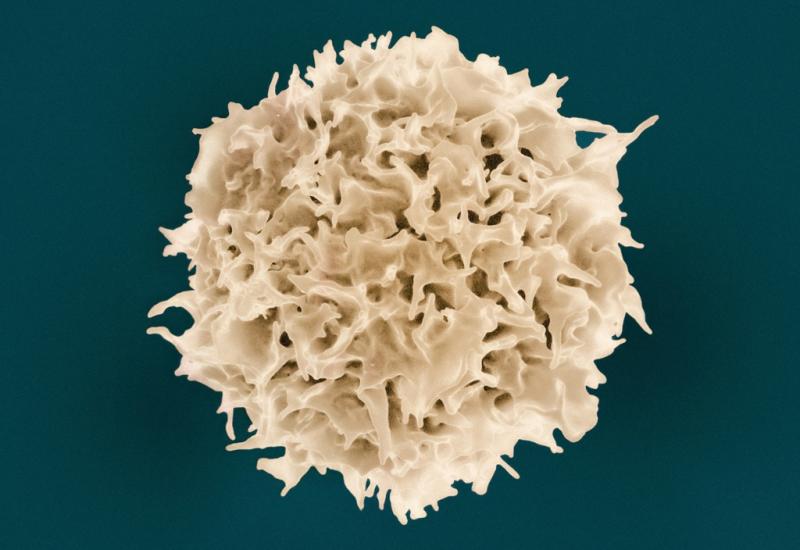
Roche perseveres with FAP
A third discontinuation leaves one anti-FAP project in Roche’s clinical pipeline.
A third discontinuation leaves one anti-FAP project in Roche’s clinical pipeline.

The discontinuation today of the early-stage asset RG6189 would seem pretty ordinary – were it not for the fact that this is at least the third FAP-targeting project Roche had moved into the clinic and then terminated.
The Swiss group has taken various attempts at hitting FAP (fibroblast activation protein α), a protease expressed in the tumour stroma, and not long ago its pipeline still boasted three separate anti-FAP assets. Only one of these now remains in development: Roche confirmed during its fourth-quarter results today that RG7827, a 4-1BB stimulating MAb, was continuing in phase 1, though this approach already has one black mark against it.
An early Roche MAb, RG7386, used bivalent binding to both FAP and DR5, aiming to induce hyperclustering of DR5 and subsequent induction of apoptosis in tumour but not in normal cells. However, after presenting early clinical data at AACR in 2017, the company said more work was needed to back the hypothesis that FAP-binding mediated sufficiently high levels of DR5 clustering for apoptosis; RG7386 no longer appears in its pipeline.
The company’s most advanced anti-FAP asset was simlukafusp alfa, a fusion protein comprising an anti-FAP MAb linked to an engineered variant of interleukin-2 (IL-2v) with diminished CD25 (IL-2Rα) binding. A phase 1 trial in kidney cancer was carried out, but a phase 2 combo with Tecentriq in solid tumours was terminated as Roche discontinued simlukafusp, citing “portfolio prioritisation”.
Roche's clinical work targeting FAP
| Project | Also coded | Mechanism | Status |
|---|---|---|---|
| RG7386 | RO6874813 | Anti-FAP x DR5 MAb | Discontinued in 2018 after ph1 trial in FAP+ve solid tumours/sarcomas |
| Simlukafusp alfa | RG7461/ RO6874281 | Anti-FAP MAb-IL2v fusion protein | Discontinued in 2023 after ph2 Tecentriq combo solid tumour trial |
| RG6189 | RO7300490 | Anti-FAP x CD40 ligand MAb | Discontinued in 2024 after ph1 +/- Tecentriq trial in solid tumours |
| RG7827 | RO7122290 | Anti-FAP x 4-1BB ligand MAb | Ph1 MSS colorectal cancer, + cibisatamab, ongoing |
Source: OncoologyPipeline.
Against this backdrop came today’s discontinuation of RG6189, a bispecific MAb that aimed to induce CD40 stimulation solely in the presence of FAP, and thus lead to “strict tumour-specific activity”. However, last year’s SITC meeting reported disappointing data, with the best overall response among 26 evaluable patients being stable disease, seen in 14, making discontinuation of RG6189 a logical move.
So how will Roche fare with its currently final remaining FAP bet, RG7827? This uses 4-1BB co-stimulation to activate T cells in addition to hitting FAP, but as far as human data go Roche has only hinted at single-agent activity in a phase 1 case report in thymic carcinoma. The current development plan involves a combo with Roche’s anti-CEA T-cell engager cibisatamab, in a phase 1 colorectal cancer trial.
However, not only has 4-1BB agonism so far disappointed as a bispecific MAb strategy, in FAP specifically it has one significant setback, with Amgen pulling out of a deal with Molecular Partners covering MP0310 (AMG 506) in 2022; this anti-FAP x 4-1BB darpin is now discontinued.
Not only that, but Molecular Partners’ lead asset is another, wholly owned darpin, MP-317, which targets FAP and CD40 – the approach Roche has now ditched. FAP has gained notoriety of late for its promise as a target for radioligands, but it’s far from clear what potential it holds.
Other moves
As well as discontinuing RG6189 Roche also today disclosed that it was ceasing work on two CD3-binding T-cell engager MAbs: RG6353 (RO7515629, against HLA-G) and RG6156 (RO7428731, anti-EGFRvIII).
And it highlighted the progression of two new molecular entities into first-in-human solid tumour studies during the fourth quarter: RG6468 (RO7566802) and RG6457 (RO7589831). The former’s mechanism is undisclosed, but the latter is a Werner helicase inhibitor – a synthetic lethality approach with growing interest – that Roche licensed from Vividion two years ago.
5241













